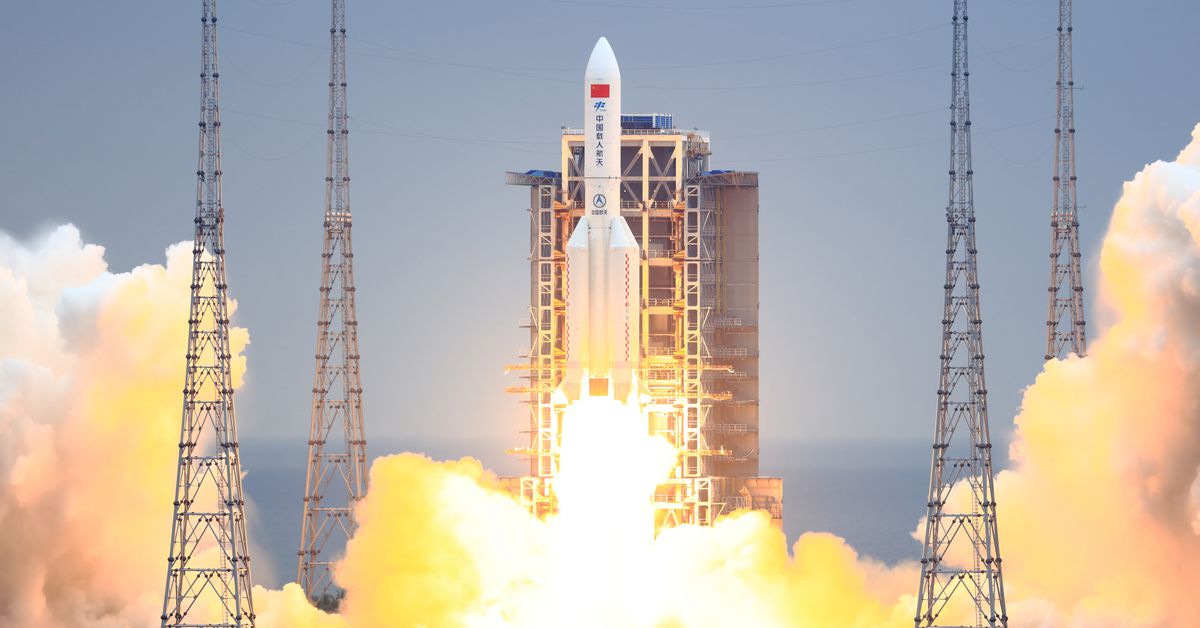
The 100-foot-tall, 22-metric-ton Chinese Long March 5B rocket that launched the first chunk of Beijing’s new space station last month has reentered Earth’s atmosphere near the Maldives, China’s Manned Space Engineering Office reported.
Scientists, amateur satellite trackers and the Pentagon had been monitoring the dead rocket stage’s location for over a week amid fears it would reenter over a populated area. US Space Command, which helps locate space junk and man-made satellites in Earth orbit, said the rocket “re-entered over the Arabian Peninsula at approximately 10:15 p.m. EDT,” adding it was unknown if the debris impacted land or water.
“Everyone else following the #LongMarch5B re-entry can relax. The rocket is down,” tweeted Space Track, a website that had been using Space Command data to publish the rocket stage’s whereabouts. The last bits of data on the rocket’s location came as it was soaring over Saudi Arabia, Space Track added.
Everyone else following the #LongMarch5B re-entry can relax. The rocket is down. You can see all relevant information and updates here on Twitter/Facebook, so there is no need to keep visiting the space-track dot org website.
— Space-Track (@SpaceTrackOrg) May 9, 2021
While most expendable rocket stages usually crash harmlessly into the ocean after pushing a separate rocket booster into orbit, China’s Long March 5B is built differently. Its entire first stage entered low-Earth orbit on April 29th to deliver its payload, a Tianhe module that will serve as living quarters for China’s new space station in the next few years.
The rocket stage, uncontrollable after delivering the space station module, then stayed in orbit for more than a week, gradually falling in altitude before reentering Saturday night. The reentry prompted rebuke from NASA administrator Bill Nelson.
“It is clear that China is failing to meet responsible standards regarding their space debris,” said Nelson, who took office as NASA’s 14th administrator on May 3rd. “It is critical that China and all spacefaring nations and commercial entities act responsibly and transparently in space to ensure the safety, stability, security, and long-term sustainability of outer space activities.”
China’s Foreign Ministry spokesman Wang Wenbin played down the rocket’s threat to populated areas while it was in orbit, telling reporters on May 7th that it would mostly burn up in the atmosphere and “the probability of this process causing harm on the ground is extremely low,” according to Reuters.
It’s not the first time a Chinese rocket has reentered Earth’s atmosphere uncontrolled. Tiangong-1, China’s first prototype space station, launched in 2011, reentered just seven years later and broke up in the atmosphere over the South Pacific Ocean.
https://www.theverge.com/2021/5/9/22426968/chinese-rocket-re-entered-earth-atmosphere

